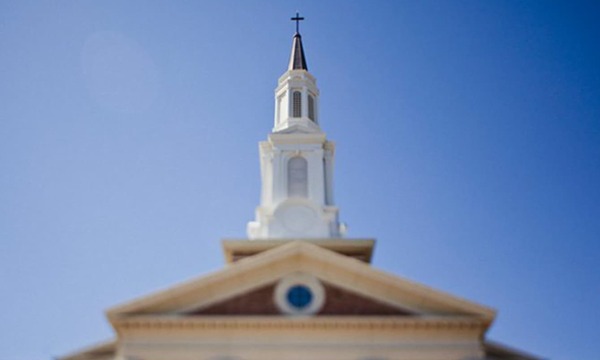In Philippians 1:19, Paul writes, ‚Äúfor I know that through your prayers and the help of the Spirit of Jesus Christ this will turn out for my deliverance.‚ÄĚ New Testament scholars disagree about what Paul is affirming. A proper understanding of this verse can help us increase our confidence in prayer.
Option 1: Physical Deliverance. Some interpreters think that Paul, currently a prisoner in chains, is affirming that he will be released from incarceration.
Option 2: Eschatological Salvation. Some interpreters think that Paul is affirming that he will experience final future salvation when he dies ‚ÄĒ that is, he will go to be with the Lord if he is killed.
Note that the word ‚Äúdeliverance‚ÄĚ shares the same underlying Greek word as the word we translate as ‚Äúsalvation.‚ÄĚ This word (ŌÉŌČŌĄő∑ŌĀőĮőĪ) can be translated either as ‚Äúdeliverance‚ÄĚ or ‚Äúsalvation‚ÄĚ ‚ÄĒ depending on the context. The polysemy of this word is the reason for the disagreement.
But I think this disagreement is short-sighted. There are ample clues in the following discussion that Paul is expressing a confidence that God will deliver him whether he is released or put to death. That is, release from prison will be deliverance, as will being ushered into the presence of the Lord through death. In Paul’s mind, both are avenues of deliverance. Look at the either/or toggling going on in the following context.
whether by life or by death (v. 20).
to live is Christ, and to die is gain (v. 21)
If I am to live in the flesh (v. 22).
I am hard pressed between the two (v. 23).
My desire is to depart and be with Christ (v. 23)
But to remain in the flesh is more necessary (v. 24).
The back-and-forth-ness is even more pronounced if you read the passage aloud with intonation ‚ÄĒ as the Philippians would have first encountered Paul‚Äôs letter.
In other words, when Paul says, ‚Äúfor I know that through your prayers and the help of the Spirit of Jesus Christ this will turn out for my deliverance,‚ÄĚ he is affirming a whether-by-life-or-death confidence that God will answer the prayers of the Philippians. Paul is confident that through these prayers he will either live or die ‚ÄĒ and that either option is deliverance.
Paying attention to how Paul approached deliverance (of either this kind or that) helps us grow in a certain type of confidence in prayer even when we don‚Äôt know how God will answer. Though the Holy Spirit often guides us in how to pray ‚ÄĒ and we need to be sensitive to his guidance ‚ÄĒ we sometimes pray without certainty about the precise way God will answer our prayer (Rom 8:26).
For this reason, we can always pray with thanksgiving (Phil 4:6), since we know that God is actively doing something in answer to our prayers ‚ÄĒ whether the answer is this or that ‚ÄĒ whether the answer is life or death. This observation also may overlap with Martin Luther‚Äôs encouragement that when we pray, we can be assured that ‚Äúeither the prayer will be answered, or that something better will be given instead.‚ÄĚ
When Shadrach, Meshach and Abednego refused to bow down to an enormous idolatrous statue on the plain of Dura, they were forced to defend their action before the most powerful ruler in the 6th-century-B.C. world. Nebuchadnezzar, seething with rage, threatened to throw them into a super-heated fiery stove. But Shadrach, Meshach and Abednego‚Äôs reply to the king is instructive: ‚ÄúIf this be so, our God whom we serve is able to deliver us from the burning fiery furnace, and he will deliver us out of your hand, O king.‚ÄĚ They continue, ‚ÄúBut if not, be it known to you, O king, that we will not serve your gods or worship the golden image that you have set up‚ÄĚ (Daniel 3:17-18).
Tim Keller observed about these three courageous men, ‚ÄúThey were ready for deliverance or death ‚ÄĒ either way, they knew God would be glorified and they would be with him. They knew God would deliver them from death or through ĽŚĪū≤Ļ≥Ŕ≥ů.‚ÄĚ
We can carry the same kind of confidence into prayer. When we pray, we can be assured that God will act in response to our prayers. This is not the final word on how God answers prayer ‚ÄĒ actually, there is much more to say ‚ÄĒ but we can rest our confidence in God no matter what, and pray with the confidence that he will answer‚Ķwhether in this way or that‚Ķwhether by life or death.
This and other resources are available at .
Notes
Martin Luther, ‚ÄúExcerpts from Table Talk, ‚ÄėEpistle Sermon, Fourth Sunday in Advent,‚Äô and ‚ÄėTreatise on Good Works‚Äô in Devotional Classics: Selected Readings for Individuals & Groups, ed. Richard J. Foster and James Bryan Smith (HarperSanFrancisco, 1993), 133
Quoted by Matt Smethurst in his book Tim Keller on the Christian Life: The Transforming Power of the Gospel (Crossway, 2025), 147.
 51¬‹ņÚ
51¬‹ņÚ.jpg)

.jpg)


